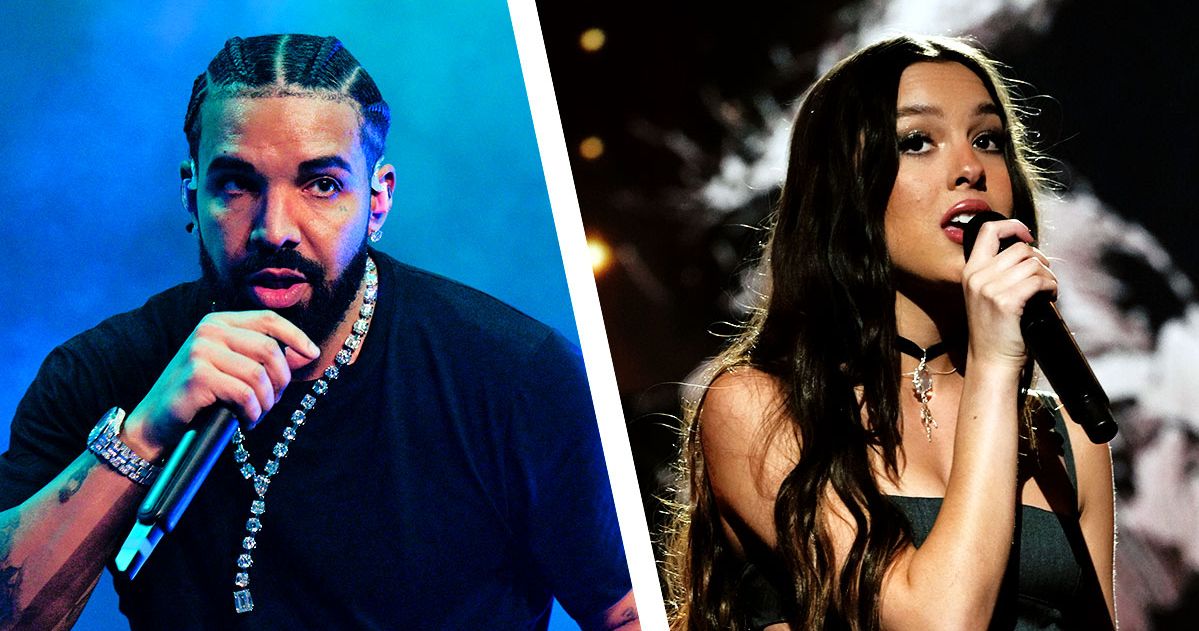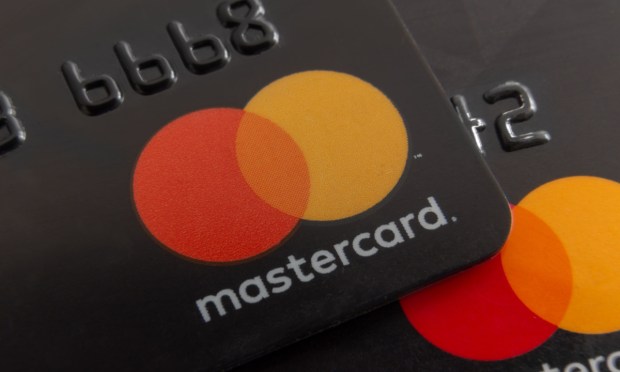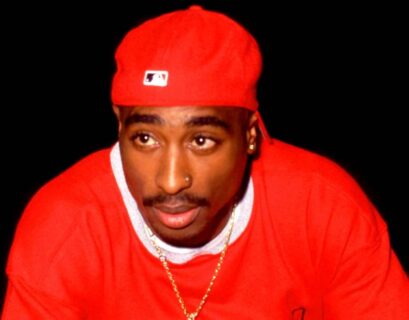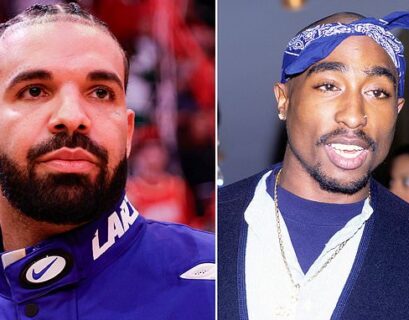Drake and Olivia Rodrigo, two UMG artists who have gone viral on TikTok.
Photo-Illustration: Vulture; Photos: Prince Williams/Wireimage, Kevin Mazur/Getty Images
TikTok just got a lot quieter. Universal Music Group, the largest music corporation on the globe, has taken its music off TikTok as it struggles to negotiate a new licensing agreement with the platform. In an open letter to musicians and songwriters on January 30, UMG said TikTok could not come to an agreement on key issues of payment, AI, and safety. The label group said it had an “overriding responsibility to our artists” that outweighed the consequences of leaving the app. “We will always fight for our artists and songwriters and stand up for the creative and commercial value of music,” UMG said. TikTok doubled down in its own response, accusing UMG of “greed” and lying. UMG’s current contract expired on January 31, and afterward, the company’s musicians were no longer available on the app. UMG confirmed the takedown in a new statement to Billboard, calling TikTok’s position “woefully outdated,” a sign that no resolution is in sight. Artists have taken their music off TikTok before, but a removal at this scale is uncharted territory for musicians and TikTokers alike.
UMG’s letter cited three concerns: compensation, AI protections, and online safety. UMG said TikTok wants to pay its artists “a fraction of the rate” of other social platforms and only makes up about one percent of the company’s total revenue in the first place. The company also criticized the prominence of AI recordings on TikTok, accusing the app of “nothing short of sponsoring artist replacement by AI.” And UMG is worried about TikTok’s inconsistent content moderation amid “the tidal wave of hate speech, bigotry, bullying and harassment on the platform” that affect their artists.
UMG claimed TikTok began to resort to intimidation tactics in their negotiations by removing the music of some of its smaller artists. “TikTok attempted to bully us into accepting a deal worth less than the previous deal, far less than fair market value and not reflective of their exponential growth,” the company said. UMG cited “an overriding responsibility to our artists” in taking this stand. In a separate note to songwriters, the company added, “We believe our greatest responsibility to you is to make sure your songs are appropriately compensated, on platforms that respect human creativity, with your music in environments that are safe for all and effectively policed.”
Most of pop music? UMG is the largest of the Big Three major-label groups (along with Sony and Warner), comprising juggernaut pop labels like Republic, Interscope, Def Jam, Capitol, and Geffen while also distributing music from other labels. In other words, this is way bigger than just one record company. And it doesn’t simply encompass artists signed to UMG labels either — this development will also affect songwriters whose music is published by Universal Music Publishing Group, which includes some artists who are signed to non-UMG labels as performers. That means the list of affected artists is pretty much a who’s who of pop music: Taylor Swift, BTS, Drake, Ariana Grande, Bad Bunny, SZA, Billie Eilish, Adele, Olivia Rodrigo, the Weeknd, and Rihanna, to name only a few. In 2023, 12 of the 19 No. 1 songs on the Hot 100 were by UMG artists, including Morgan Wallen’s record-setting “Last Night.”
And many UMG artists found success on TikTok. A dance challenge on the app turned the Weeknd’s “Blinding Lights” into the longest-running Hot 100 hit ever; TikTok helped Rodrigo first break out with “drivers license.” Swift revealed her Midnights track list in a series of TikToks, and even Drake got in on the fun in 2020 with the blatantly TikTok-bait song “Toosie Slide” — which immediately hit No. 1. Now, as Swift prepares for a new leg of her Eras tour and Grande readies her seventh album, Eternal Sunshine, UMG risks missing out on prime opportunities.
Metro Boomin, who’s on Republic, supported the move on Twitter. “I love the creativity and appreciation the kids show for the music on TikTok but I don’t like the forced pandering from artists and labels that results in these lifeless and soulless records,” he wrote, after tweeting a GIF that said “It’s about damn time.”
In its own, much briefer statement on January 30, the social platform called UMG’s claims “false” and criticized the move. “It is sad and disappointing that Universal Music Group has put their own greed above the interests of their artists and songwriters,” TikTok said. The platform noted that it has deals “with every other label and publisher.” For good measure, TikTok also reminded UMG of its billion-plus users and the “free promotional and discovery vehicle” the company would miss out on.
That didn’t make UMG too happy. The company picked apart TikTok’s response in a statement to Billboard after removing its music on February 1. “Even though TikTok (formerly Musical.ly) has built one of the world’s largest and most valuable social media platforms off the backs of artists and songwriters, TikTok still argues that artists should be grateful for the ‘free promotion’ and that music companies are ‘greedy’ for expecting them to simply compensate artists and songwriters appropriately, and on similar levels as other social media platforms currently do,” a spokesperson said, adding that TikTok didn’t mention AI or safety either.
Short answer: We don’t know. TikTok doesn’t make its royalties public, and those rates are different depending on each label group’s deal. (That’s what got us here in the first place.) We do know, though, that UMG isn’t bluffing when it says TikTok is just a fraction of its income. According to Goldman Sachs’s 2023 “Music in the Air” report, which analyzes industry finances from 2022, TikTok made the music industry $220 million in revenue that year. That’s … not a lot. “Emerging platforms” like TikTok only accounted for 6 percent of the industry’s total 2022 revenue, and TikTok was only a 14 percent share of that (up one percent from 2021). Yes, that’s significantly more than YouTube Shorts or Instagram Reels, but less than Facebook or even Peloton. Fourteen percent of 6 percent indeed comes out to a little less than one percent of the music industry’s total revenue. To UMG, which made $10.95 billion in revenue in 2022, that TikTok money is pocket change.
UMG has been concerned with TikTok’s payments for years. At the 2022 Music Matters conference, UMG’s CEO and chairman, Sir Lucian Grainge, said the industry should “avoid repeating past mistakes” by not advocating for fair pay on TikTok, per Music Business Worldwide, citing previous dynamics with YouTube and MTV. And on UMG’s 2022 Q3 earnings call, Grainge and other leadership expressed hope for a fair deal with TikTok. “When you look at what the funnel that TikTok has, when you look at the billions of views, the rate at which the company has grown, we will fight and determine how our artists get paid and when they get paid, in the same way that we have done throughout the industry for many years,” Grainge said, per Music Business Worldwide. “I have seen this movie before, I know the ending.”
Yes, but UMG’s concerns about artificial intelligence and TikTok go beyond the platform being “flooded with AI-generated recordings.” In its letter, UMG said the app isn’t just complacent in the AI content boom, but encourages it. The company didn’t specifically mention TikTok’s new AI Song tool, but that probably didn’t help the app’s case. Earlier this month, TikTok began rolling out the feature, which can turn user-written lyrics into a song in one of three chosen genres (pop, hip-hop, and EDM). “It’s not technically an AI song generator,” a spokesperson told the Verge, adding that the name would “likely” be changed. This is just the latest AI tool from TikTok, joining others like Creative Assistant, which uses AI to help creators make videos. TikTok has become more strict about identifying AI-generated content on the platform, though, announcing new requirements for labels on posts involving AI content last fall.
For its part, UMG is involved in AI too. Last year, for instance, UMG announced a deal with the AI startup Endel through which its artists could use Endel’s AI technology “to create science-backed soundscapes.” When UMG announced that deal, though, its executive vice-president and chief digital officer, Michael Nash, specifically spoke about “the incredible potential of ethical AI” — ethical being the operative word. UMG has run into trouble with AI before, as when the anonymous artist ghostwriter released a song called “Heart on My Sleeve” last year featuring AI dupes of Drake and the Weeknd — both UMG artists. TikTok helped that song go viral, and UMG’s stock suffered about a 20 percent hit afterward. Yeah, it goes back to money: One of the chief issues with AI-generated music, to UMG, is that it could “massively dilute the royalty pool for human artists.”
Concerns over harmful content on TikTok are nothing new, reaching all the way to Congress, which questioned CEO Shou Zi Chew over the issue in 2023. UMG wrote in the latest letter that TikTok has “no meaningful solutions” to safety concerns. While the label is referring to hate speech and harassment, it says this also extends to “content adjacency issues,” or ads running alongside inappropriate content. Unsafe content is particularly salient to UMG at the moment as Twitter cracks down on AI-generated nudes of Taylor Swift; the letter cited “pornographic deepfakes of artists” as an example of harmful content. UMG went on to call TikTok’s approach to moderation “the digital equivalent of ‘Whack a Mole,’” referring to “the monumentally cumbersome and inefficient process” of asking for a post to be taken down. TikTok has claimed it uses tens of thousands of moderators, along with an AI algorithm, but even some of those moderators have criticized the app’s processes.
All of the Big Three label groups have been negotiating with TikTok since 2022, Bloomberg reported. Warner Music Group — the smallest, covering artists like Dua Lipa and Zach Bryan — struck “a wide-ranging, first-of-its-kind partnership” with TikTok last July. A press release was scant on details, but touted increased partnership between the companies, like finding “new ways to harness TikTok’s revenue generation and promotional capabilities” for Warner’s musicians. Good news for your “Training Season” TikTok plans.
But UMG isn’t the only group with concerns. Sony Music Group, which has artists like Beyoncé, Doja Cat, and Miley Cyrus, has expressed an interest in higher payment for short-form video. Chairman Rob Stringer didn’t specifically mention TikTok at the company’s 2023 investor presentation, where he said Sony is “aggressively leaning into” short-form video, Music Business Worldwide reported. “It doesn’t take a scientist to realize that we are being underpaid by some of those content providers,” Stringer added.
UMG’s deal with TikTok was up January 31, and its artists’ music is off the app as of February 1. If you attempt to use a UMG artist’s song on TikTok, it says “music is not available.” If you’ve been sitting on any SwiftTok ideas, looks like you’ll have to keep waiting.










